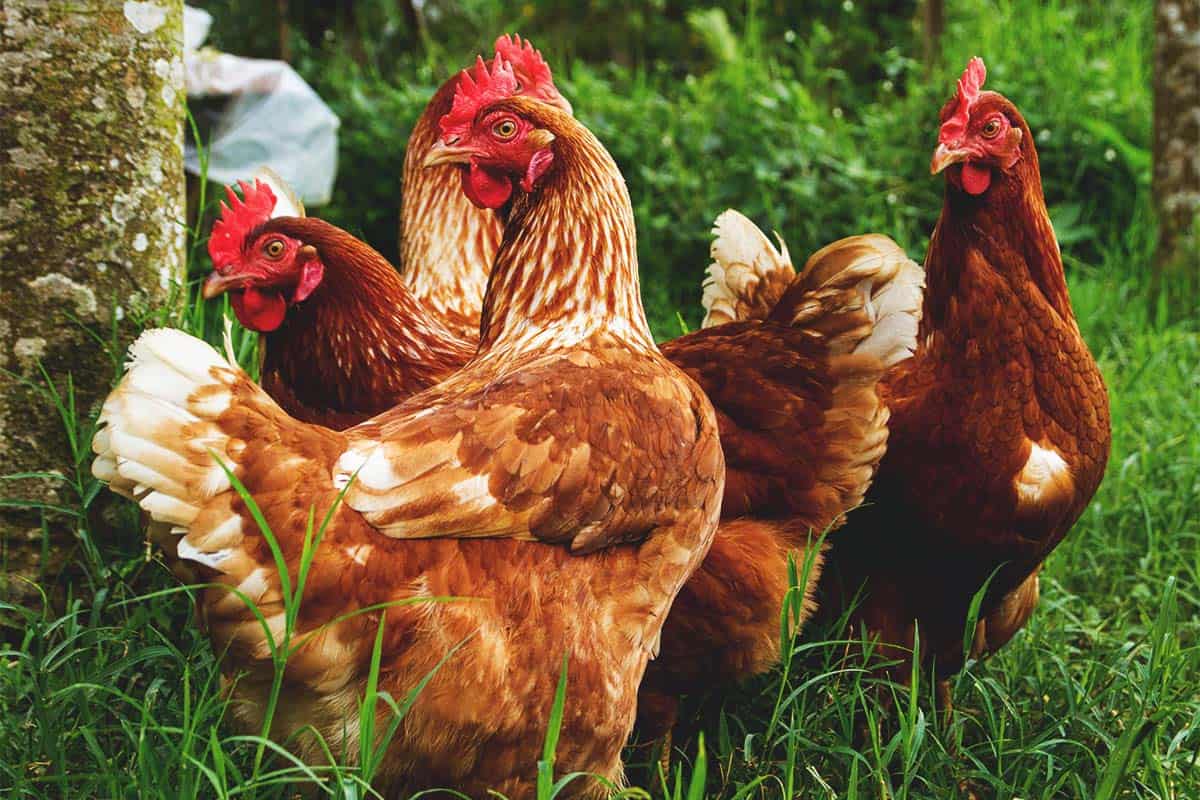
Savannah's family began homesteading in the Blue Ridge Mountains of Virginia when she was ten years old. She fell in love with the lifestyle and knew she wanted to keep animals of her own. When Savannah was 11, she saved enough money to buy her own flock of chickens. Since then, her passion has grown, and she plans to build a career in farming while educating others about homesteading and sustainable living. Savannah is especially passionate about nurturing hurt and sick animals back to health.

If you buy an item via links on this page, we may earn a commission. Our editorial content is not influenced by commissions. Read the full disclosure.
For many people, nothing says “homestead” like the image of chickens happily scratching around a farmyard without a care in the world. Realistically, free-ranging isn’t always as picture-perfect as it might look, but it certainly has advantages that make it worth the trouble.
However, free-ranging is not as simple as just releasing your birds out into the great outdoors and hoping for the best. You’ll need to know what to look out for and prepare to make sure that your experience in free-ranging your flock is as flawless as possible.
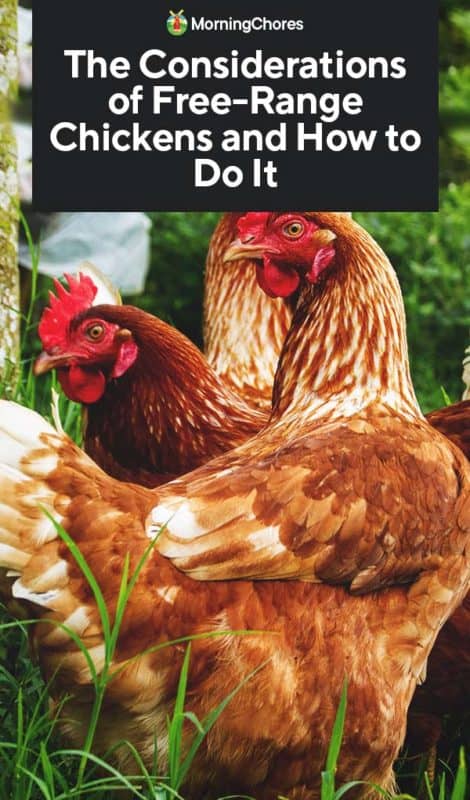
What exactly is free-ranging? Well, the answer to this question varies depending on who you ask. According to the USDA, any chicken with access to the outdoors is labeled as a free-range bird.
Based on that definition, pretty much every chicken keeper has “free-range chickens”, right? Well, if you ask a homesteader, they’ll likely reply that free-ranging means the chickens are free to roam wherever they please, which is the more commonly accepted answer amongst smaller-scale farmers and homesteaders.
Personally, I provided my 50 birds with an enclosed area of 6,700-square feet and considered them free-range chickens. Honestly, they used about a quarter of their run at any given time, so I don’t think they were lacking at all. I mean, 134-square feet per chicken is pretty spacious if you ask me.
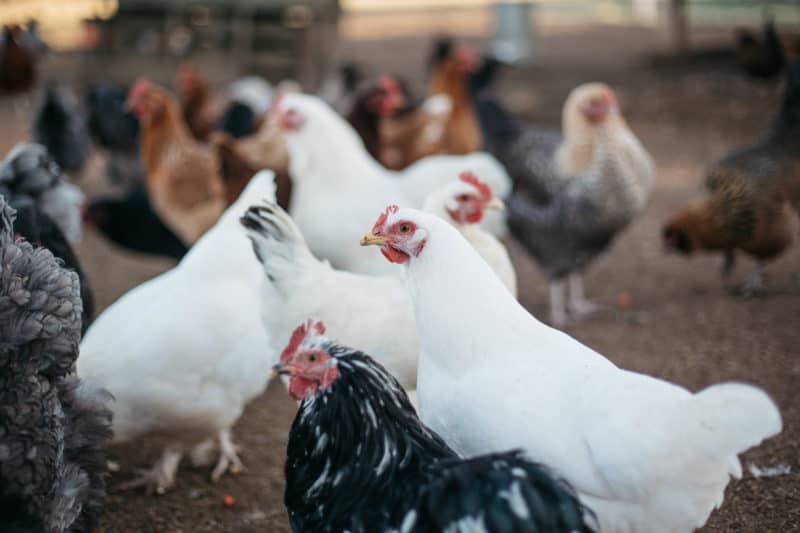
Chickens were no doubt made to spend their days foraging for their own food based on how much they thrive in such an environment. When given the opportunity to, chickens will spend the whole day happily pecking and scratching to their heart’s content. A diet consisting of less laying feed and more vegetation and bugs is no doubt a healthier diet for your chickens.
When your chickens are spending so much time foraging for their own food, they will naturally eat less of the food in their feeder.
This means you don’t have to purchase food as frequently for your flock during the months where bugs and vegetation are abundant. I’d call that one a win-win for you and your flock. They get to forage for tasty food and you spend less money, everyone’s happy!
During the winter, you will find yourself buying more feed because there is just less for your birds to forage. Nonetheless, free-ranging should save you some feed money when grass and bugs are abundant.
Have you ever noticed how “free-range” eggs are ridiculously expensive compared to regular eggs in the store? People are willing to pay more for pastured products because they know that well-fed animals produce tastier products. Selling free-range eggs not only increases your marketability but it means tasty eggs for you and your family.
Let’s be honest, it gets horribly tiresome chasing that one chicken constantly escaping the run. The solution? Just eliminate the run and let your birds free-range. Your birds will be quite content and you may even notice an increase in egg production from your happy hens.
You might not think that a few chickens can help with insect control, but they are effective little birds. While guineas are the top bird for tick control, chickens will still enjoy munching on the creepy crawlies you don’t love having around.
Chicken manure in large quantities is too acidic to use for fertilizer without letting it sit for 6 months to rest. However, allowing birds to free-range gives you a great opportunity to fertilize with fresh chicken manure.
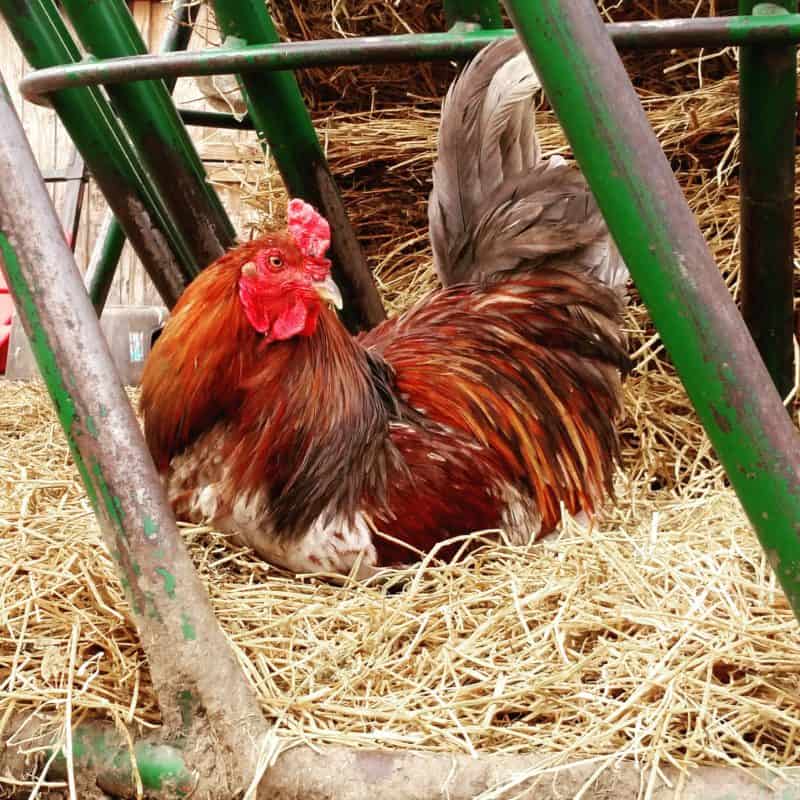
When your chickens are ranging all day, they are at an increased risk for predator attacks. Roaming dogs and aerial predators are an especially prevalent issue for most free-range flocks and it can be difficult or impossible to prevent these attacks.
If you are a homesteader, chances are you like growing things that chickens will enjoy destroying. From flower pots to gardens, chickens will happily jump at the opportunity to scratch up loose dirt and your fresh herbs, flowers, or vegetables.
Chickens are always on the lookout for the safest place to lay eggs. However, their definition of a safe place doesn’t always line up with our definition of a safe place. Hens will sometimes abandon the safe nesting boxes for hidden places, which means daily egg hunts and lost eggs.
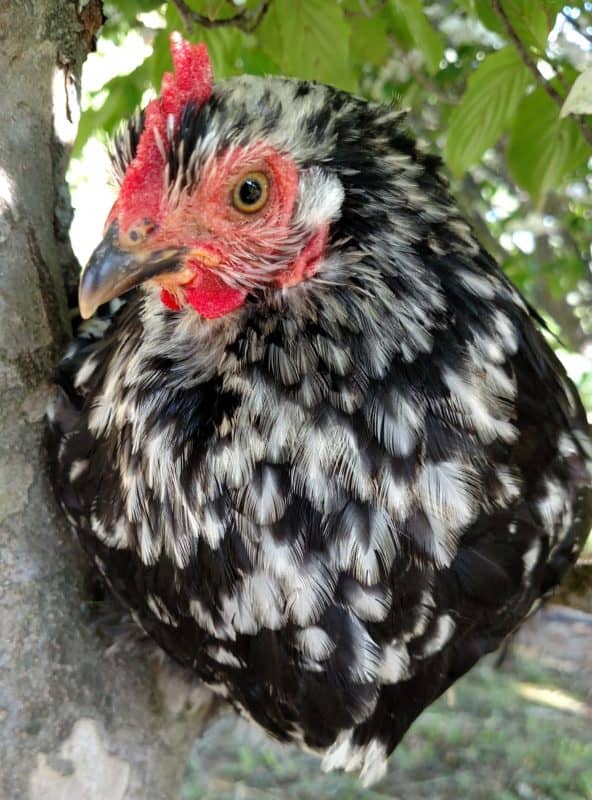
Sometimes when chickens have an entire world to roost, they’ll get it in their heads that the coop is not the safest place to roost at night. When you are raising birds you plan to free-range, do your best to instill strong roosting habits from the beginning. Placing young birds on roosts at night time will help to show them where the ideal sleeping areas are.
There are many ways to take precautions to help keep your birds as safe as possible from predators. Consider keeping a rooster with your flock who will keep a watch on his hens to alert them of danger.
Another possibility might be a Livestock Guardian Dog to help watch out for your chickens. Before adding either of these to your farm, make sure that you do adequate research to make sure you pick what works best for you and your farm.
If you choose to free-range chickens, you’ll need to make sure that the rest of your homestead is protected. You can get creative with decorative cloches over flower pots that may be vulnerable, or consider hanging baskets that stay out of the chicken’s reach.
Consider fencing in your gardening areas to keep chickens out of your precious vegetables, or even create a dedicated chicken garden, to keep them happy.
Chickens seem to have a thing for making it as difficult as possible for their devoted owners to care for them. When it comes to hidden nests, there are a few things you can do to make things easier on yourself.
Fake eggs can be a lifesaver when it comes to encouraging your hens to lay where you want them to. Place fake eggs in nesting boxes to give them an idea where you want them to lay. If you find a hidden nest that is in a convenient spot for you, place some fake eggs in it!
Although it sounds a bit backward, hens will continue laying in a nest they think hasn’t been found. When hidden nests are emptied day after day, hens will go find a new place to hide eggs.
There are several things to take into account when deciding which chickens to choose for free-ranging. Chickens best suited to thrive in a free-range environment will have good visibility, strong foraging instinct, awareness of predators, and coloration to blend with their environment.
Chickens such as Polishes and Houdans with large crests covering their eyes have limited visibility. Birds with limited visibility are much more vulnerable to predator attacks since they can’t see what’s coming for them.
Heritage breeds are generally best suited for free-ranging because they have strong instincts such as the desire to forage and awareness of predators. Newer, more commercialized breeds are bred solely for production and don’t have the natural instincts like the older breeds.
We all know how camouflaging works, chickens with certain feather patterns will do better than others because of their visibility. Choosing a white chicken to free-range versus a brown hen with white speckles can have very different results.
Speckled Sussex chickens are well suited to free-ranging for many different reasons. The feathers these pretty birds sport make an excellent camouflage to help them safely forage. As far as instincts go, this heritage chicken does quite well at foraging and watching out for potential dangers.
Buckeye chickens are another heritage breed that has a deeply rooted foraging instinct that makes them excellent for finding their own food. The deep brown color on Buckeyes also makes them easier to hide while free-ranging than a plain white chicken.
Plymouth Rocks, more specifically Barred Rocks, are a well-loved chicken for more than just their free-ranging capabilities. These birds are excellent egg layers and friendly chickens that are wary of potential dangers that could harm them while free-ranging.
Egyptian Fayoumis are not the friendliest chickens around, but their flightiness definitely comes in handy when it comes to avoiding predators. An Egyptian Fayoumi has the camouflage and wits about it to have a good chance at remaining unharmed when they are out foraging.
Welsummers are a fun breed to have around for more than just their free-ranging capabilities. This beautiful chicken is an excellent free ranger that lays gorgeous chocolate brown eggs to spice up any egg basket.
It’s quite obvious that there are significant advantages to free-ranging, but it isn’t always picture perfect. You may decide that the drawbacks or your current situation just don’t make it worth it for you to free-range your flock. There is a setup for every chicken keeper, so if free-ranging doesn’t work out, there may be some good alternatives.
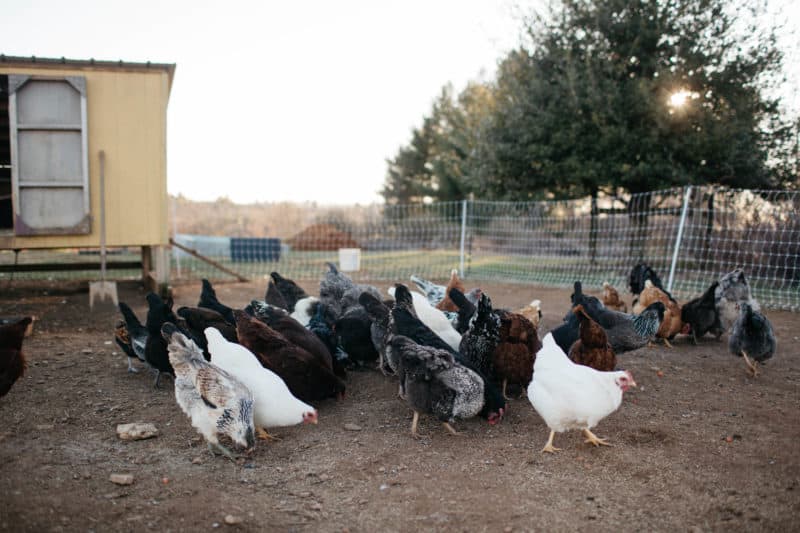
Electric poultry netting is an excellent choice to give your birds a free-range environment without giving them free rein over the farm. Different lengths of poultry netting can be purchased and connected together to lengthen the run and give your birds extra room.
For chicken keepers with space to move their flock around, the poultry net is only semi-permanent, which means you can move it to fresh grass as needed. With the helpful aspect of electric fencing, your flock should stay safe from predators.
Chicken tractors are another excellent alternative to free-ranging to make sure your birds still get access to fresh grass. There are many plans and designs for chicken tractors to fit your specific flock needs. With chicken tractors, you can be assured that your flock is safe from aerial predators, but still reap the benefits of a foraged diet.
Although free-ranging has numerous benefits, it’s not for everyone and it’s okay if it isn’t for you and your farm. Carefully consider the aspects of your flock and farm to decide what the best choice is for your chickens. Luckily, farming comes in all shapes and sizes and there’s no right or wrong way to do it!